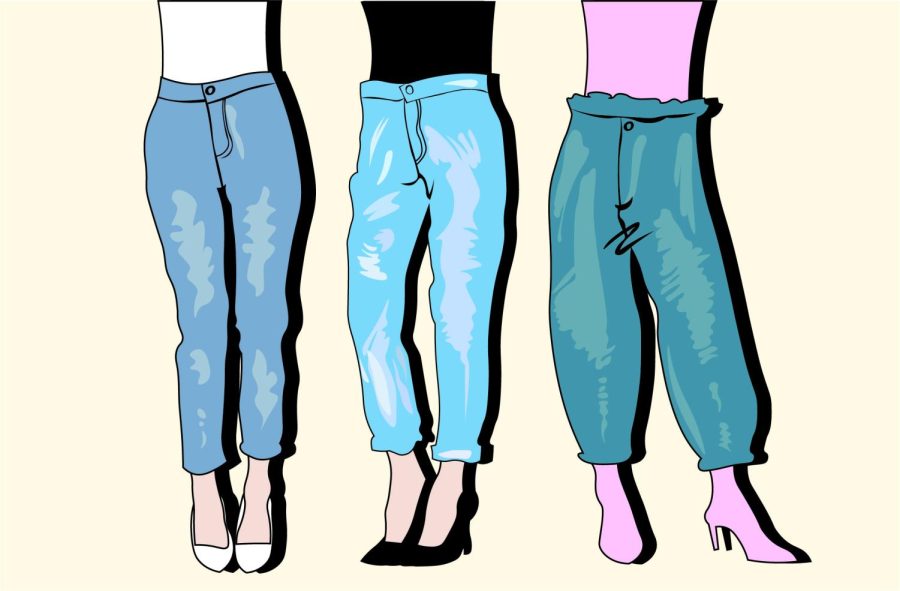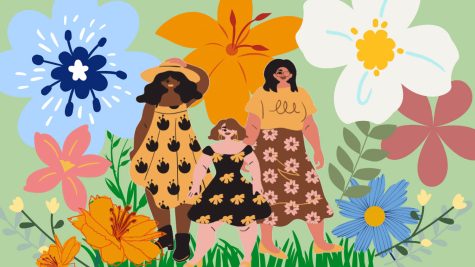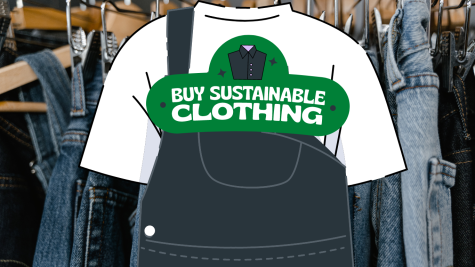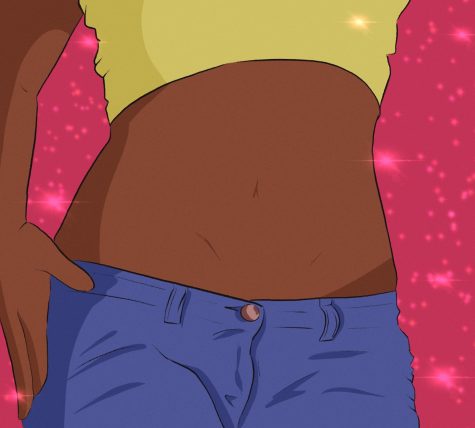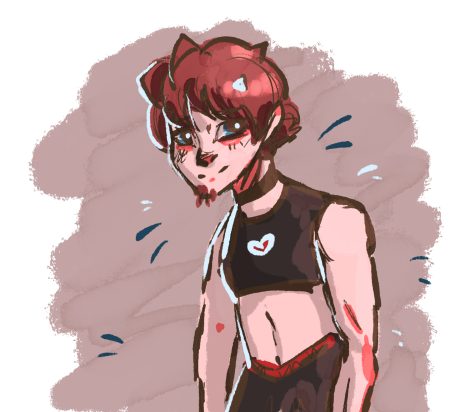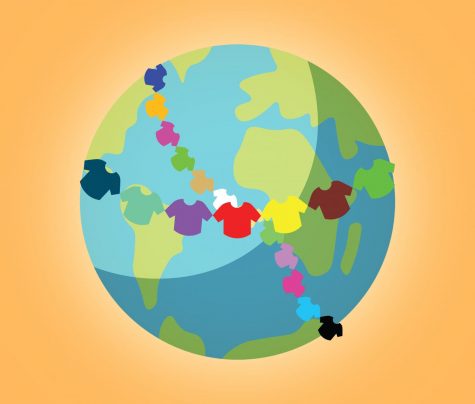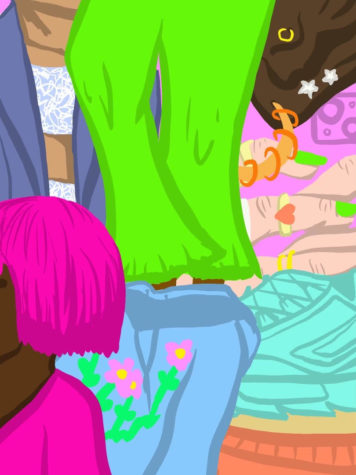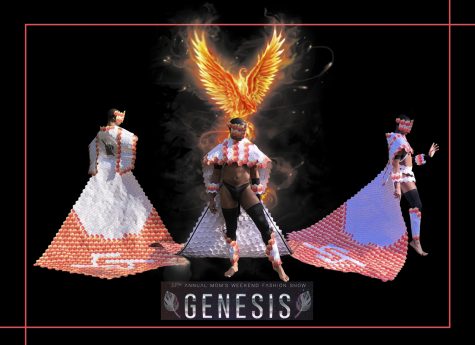OPINION: Jean brands for a more conscious closet
Shop sustainably, help lessen personal environmental impact.
These four sustainable denim brands will take your jean game to the next level.
January 25, 2022
If you have read my previous article surrounding sustainable practices, you know that buying second-hand clothing is the best way to purchase ethically. However, sometimes it can be difficult to find jeans in your style preference or size.
Instead of shopping at fast-fashion jean brands like ASOS or Shein, opting for brands that take into consideration environmental concerns can help lessen your environmental impact.
Jean production is one of the leading causes of fabric and water waste in the fashion industry. According to sustainable living site Treehugger, it takes 1,800 gallons of water to grow enough cotton to produce just one pair of jeans — that is around 500 billion gallons of water a year.
In addition, the toxic dyes used in jeans can be harmful to workers and the environment.
When researching brands, take into consideration the transparency of the company. The brand should be communicating the specific steps and efforts they take to promote sustainability rather than just using vague pro-environmental language.
After viewing sustainability reports, I have found four sustainable jean brands that are taking major steps to put the health of the environment before profits.
Boyish Jeans
Boyish Jeans is a collection of sustainable women’s denim designed in Los Angeles. Each collection is centered on vintage silhouettes with a modern edge.
Inspired by stylish women who have described their personal style as “boyish,” the brand uses men’s inspired fabrics and fits tailored for women. Their prices range from $51-$158.
Boyish Jeans’ efforts in sustainable fashion include partnering with ethical factories, using fewer chemicals and consuming one-third the amount of water typically needed to produce a pair of jeans. The company also works hard to protect water by using recycled water to keep harsh chemicals out of freshwater streams.
Boyish exclusively works with recycled fabrics and emphasizes that sustainability is at the core of their fabric. Boyish encourages sustainable living and inspires other brands to join the movement.
Warp + Weft
The next denim brand is Warp + Weft. The brand is best known for its size inclusivity, and produces designs for men, women and children.
Prices range from $73-$118.
While many other brands buy their materials from secondhand sources, Warp + Weft develops their own denim from scratch.
Their denim is designed based on customer data regarding their specific needs. The brand then fit-tests their styles on customers of different ages and sizes.
While a common pair of jeans takes 1,500 gallons of water to produce, a pair of Warps requires less than 10. In addition, the company recycles 98% of water used and skips the bleaching process, which is harmful to the environment.
Warp + Weft also enforces positive working conditions for everyone working for them by using ethical practices and ensuring fair wages for their employees.
Levi’s
After decades of dominating the jean world, Levi’s is changing its commitment to environmentally friendly products. Levi’s provides jean options for men, women and kids, and even has gender-neutral options.
Levi’s jean prices range from $25-$100.
Levi’s is transparent about their denim production process and explains on their website what they are doing to be more sustainable and use less water, according to their website.
Levi’s website now has a tab where you can shop their second-hand vintage jeans. The brand encourages customers to buy their jeans second-hand and wear them longer.
By 2025, Levi’s hopes to incorporate 100% sustainably sourced cotton into its jeans, and power all its facilities with renewable energy.
Levi’s promotes the longevity of their fabrics which can help reduce environmental impact. According to the company, more than 85% of textiles end up in landfills today, mostly due to the poor quality of fabric used. The brand’s website also gives information on where you can go to recycle your old jeans.
Reformation
Designed for women, Reformation has a wide range of sizes and is perfect for those who want timeless and feminine designs. A bit on the pricey side, Reformation jeans range from $78-$200.
The brand sells dresses and jeans and puts sustainability at the heart of what they do. Reformation has been 100% carbon neutral since 2015 and offsets from a 100% wind power supplier.
Reformation’s clothes are made in the U.S. and all sewing and cutting is done in Los Angeles in their own factory.
All products are tested against the Restricted Substance List (RSL) to confirm there are no hazardous substances in their products. The RSL is a list of chemicals restricted in consumer products that can be developed by industry groups, brands or retailers.
The Reformation website provides in-depth descriptions of how their clothes are made, factories, carbon production, climate certifications and updated quarterly sustainability reports.
The brand is also popular amongst celebrities, such as Taylor Swift, Olivia Rodrigo, Kendall Jenner and many others.
It’s On Us
These are just a few of the many sustainable brands that exist out there.
A great resource for rating brands and finding sustainable alternatives is the app Good on You – this app is a quick and easy way to compare brands based on their impact on the environment, their labor practices and their treatment of animals.
It is important to check sustainability reports when researching brands. Many brands use greenwashing to appear more environmentally friendly than they are, which can lead to misinformation. Greenwashing is a deceptive kind of marketing used to make a company look ethical when, in reality, they are not.
Sustainable clothing brands do tend to run at higher price points because of extra environmental precautions, worker safety and material quality.
Think of sustainable clothing as an investment – it is built for quality and longevity. Sustainable clothing is not meant to be replaced every six months to fit the latest trends like many fast fashion pieces are.
The extra cost also breaks even in the future. A $100 pair of Levi’s that will last for years quickly overtakes a $25 pair of Shein jeans that you have to replace every few months.
If your goal is to become more sustainable, make sure to do your research, thrift, do clothing swaps and shop fair trade as much as you can. Your individual impact and choices make a difference – it takes all of us working together to create a more sustainable future for the planet.

